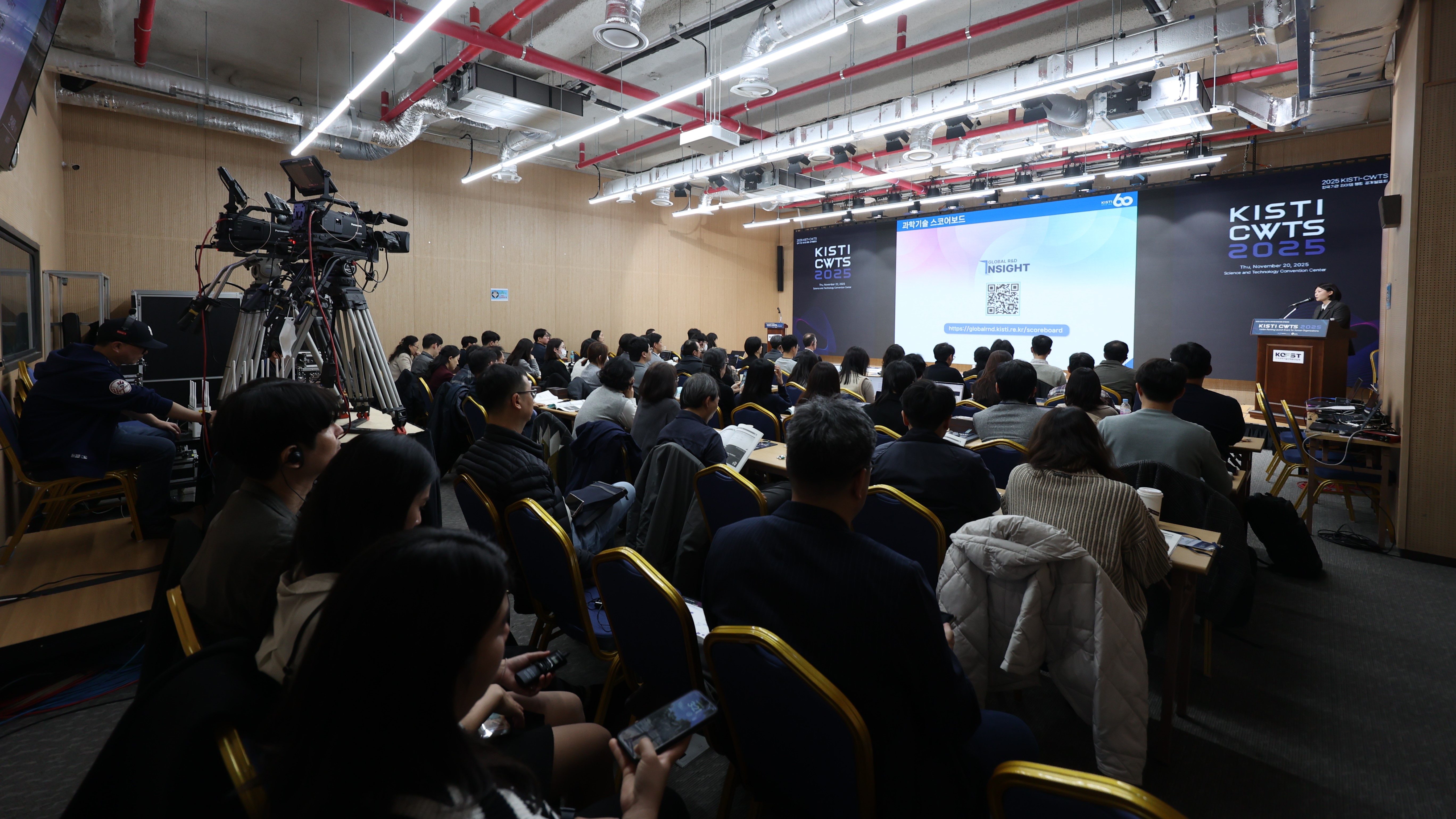KISTI Releases the “Science & Technology Scoreboard 2025” Covering Major Global Countries and Domestic Research Institutions
배혜림 2025-11-25 View. 38KISTI Releases the “Science & Technology Scoreboard 2025” Covering Major Global Countries and Domestic Research Institutions
- Joint Research with the Centre for Science and Technology Studies (CWTS), Leiden University
- A High-Quality Exploration Tool Offering a Comprehensive View of Global R&D Activity
□ The Korea Institute of Science and Technology Information (KISTI, President Lee Sik) announced on Thursday, November 20, the release of the Science & Technology Scoreboard 2025, developed through joint research with the Centre for Science and Technology Studies (CWTS) at Leiden University in the Netherlands. The Scoreboard allows users to examine the research performance of major countries worldwide as well as Korean research institutions through a wide range of indicators.
☞ Science & Technology Scoreboard: globalrnd.kisti.re.kr/scoreboard
☞ Datasheet: zenodo.org/records/17570482
□ This year marks the second public release, following the initial pilot version in 2023, and features a significantly expanded analytical scope. The global country scoreboard now covers 45 countries (up from 20), and the domestic institutional scoreboard has broadened its coverage from 196 to 359 Korean institutions. In addition, a new scoreboard for 25 major global public research organizations—including members of the National Research Council of Science & Technology (NST)—has been added. KISTI and CWTS also conducted a rigorous standardization of Korean institution names and applied the same analytical framework used in the CWTS Leiden Ranking, ensuring improved reliability and consistency across indicators.
□ At the ranking launch event jointly organized by KISTI and CWTS, Dr. Jinseo Park and Dr. Mark Neijssel presented the data sources, methodology, and key indicators used in the scoreboard, including scientific impact, collaboration, open access, and gender. Dr. Sejung Ahn, Head of Science and Technology Indicators Research Team demonstrated how the Scoreboard can be used not merely for ranking institutions, but for analyzing diverse aspects of scientific activity through evidence-based research data.
□ Prof. Ludo Waltman, Scientific Director of CWTS and lead of the Leiden Ranking, emphasized the importance of transparency and openness in research assessment. “Traditional university rankings do not fully align with the principles of Open Science,” he noted. “CWTS will continue to enhance data transparency and broaden coverage to include regional journals, ensuring that rankings better reflect the diversity of research ecosystems.”
□ Dr. June Young Lee, Director of Center for Global R&D Data Analysis, highlighted the Scoreboard’s strategic value. “The Science & Technology Scoreboard is a high-quality exploration tool that enables users to directly examine different dimensions of national scientific activity,” he said. “We hope it will serve as a valuable resource for understanding Korea’s global position and strategic direction in science and technology, moving beyond simple rankings to inform evidence-based R&D policy and planning.”

KISTI and CWTS representatives pose for a group photo.

Dr. Sejung Ahn, Head of the Science & Technology Indicators Research Team at KISTI’s Center for Global R&D Data Analysis, introduces the Science & Technology Scoreboard.
Attached files(2)

 Delete Article!
Delete Article!